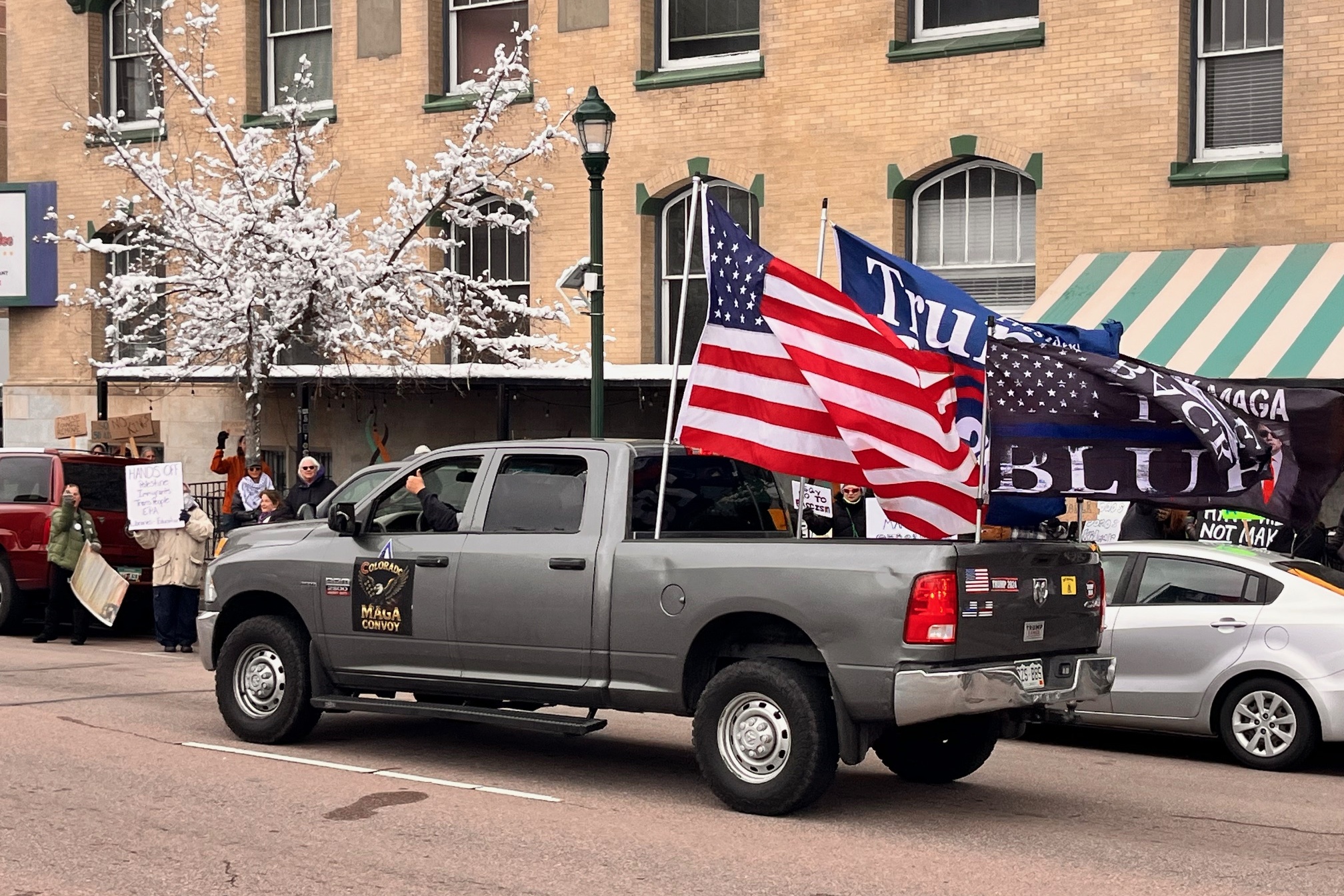Any day now, the 9th Circuit Court of Appeals will rule on the case of Adree Edmo, a transgender women currently in prison in Idaho. She sued the state for sex reassignment surgery and won. The state appealed and now the 9th Circuit’s decision on her case could have implications not only for her but for transgender inmates across the West and potentially the nation.
The Mountain West News Bureau's Amanda Peacher has been following this story and produced a podcast about it. And 91.5 KRCC’s Mountain West reporter, Ali Budner, spoke with her.
KRCC: Thanks so much for joining us. So who is Adree Edmo and why should we care about her case?
Peacher: Adree Edmo is frankly a complicated person. She grew up on the Shoshone-Bannock Indian Reservation in Eastern Idaho in an environment that included poverty and abuse and alcoholism. One of the complicating factors of her story is that she went to prison for sexual abuse of a 15-year-old when she was 22. We know that she struggled with her sexual identity growing up, according to court documents. And when she got to prison she was diagnosed with gender dysphoria which is a condition a lot of people may not have heard of or understand.

KRCC: You did some reporting on that. Can you explain that for people who might be unfamiliar with the term?
Peacher: Sure so gender dysphoria is severe distress from being born in a body that does not match your gender identity. And one of the recommended treatments -- not the only one -- but one possible treatment for that is sex reassignment surgery.

KRCC: That’s a lot to dig into -- one person’s story and then also this bigger issue. Can you talk about what that was like?
Peacher: Well there are so many layers to this story. So we get into not only the background of Adree and why she’s in prison, we also get into treatment for gender dysphoria, how Adree’s surgery would be paid for should she win, whether taxpayers are involved. You know this is a huge political issue in conservative Idaho so we also delve into the gap between public perception of the transgender community and medical treatment for gender dysphoria and also the medical consensus around that treatement. We get into the gap between public perception of Adree’s case and the legal arguments of the case.
KRCC: So that’s why this story deserved its own podcast. Where are all the places and people you take us to in this podcast?
Peacher: We explore Fort Hall, the reservation where Adree Edmo grew up. One of our reporters went to Northern Idaho to interview a surgeon who performs sex reassignment surgeries and to follow a woman who is undergoing that surgery. I also went to oral arguments when Edmo’s case was before the 9th Circuit Court of Appeals in San Francisco.

KRCC: Wow, so you were there for that hearing. What was that like?
Peacher: It was really interesting. We still don’t have a sense for what the timing of a decision will be but it was fascinating to see the plaintiff’s case and the defense’s case play out there in person.
For the Edmo’s attorneys this case is about something they call “deliberate indifference.” They say the state is being deliberately indifferent to Edmo’s medical needs and that constitutes cruel and unusual punishment.
Her lead attorney, Lori Rifkin, says Edmo’s medical needs are as clear cut as treating a cancer patient. She said, “if somebody requires surgery, or chemotherapy or radiation to shrink their tumor, that is what we give them.”

But the other side argues this is about medical judgment. I talked to Walter Olson. He’s a senior fellow at the CATO Institute. And he says this case is essentially a battle of the experts. He said, “it may seem like an objective thing to figure out what are someone's medical needs and then you try to put that into effect and as you know if you ask five different health insurance plans what is medically necessary care you'll get five different answers.”
KRCC: What are the stakes -- for Edmo -- and also for other transgender inmates like her?
Peacher: If Adree Edmo wins, then she’ll be provided the surgery and transferred to a women’s prison. But her case could also have ripple effects in prisons across the West. It could mean that inmates who are diagnosed with severe gender dysphoria could be eligible for the surgery at other prisons. This has the potential to go to the Supreme Court if Edmo wins, but of course you never know that that’s going to happen until the Supreme Court decides to take a case.
You can listen to all four parts of Amanda's reporting at Boise State Public Radio. And you can subscribe to the entire podcast “Locked,” on NPR Podcasts, Apple Podcasts, Stitcher, or Google Play.
This story was produced by the Mountain West News Bureau, a collaboration between Wyoming Public Media, Boise State Public Radio in Idaho, KUER in Salt Lake City, KUNR in Nevada, and KRCC and KUNC in Colorado.









